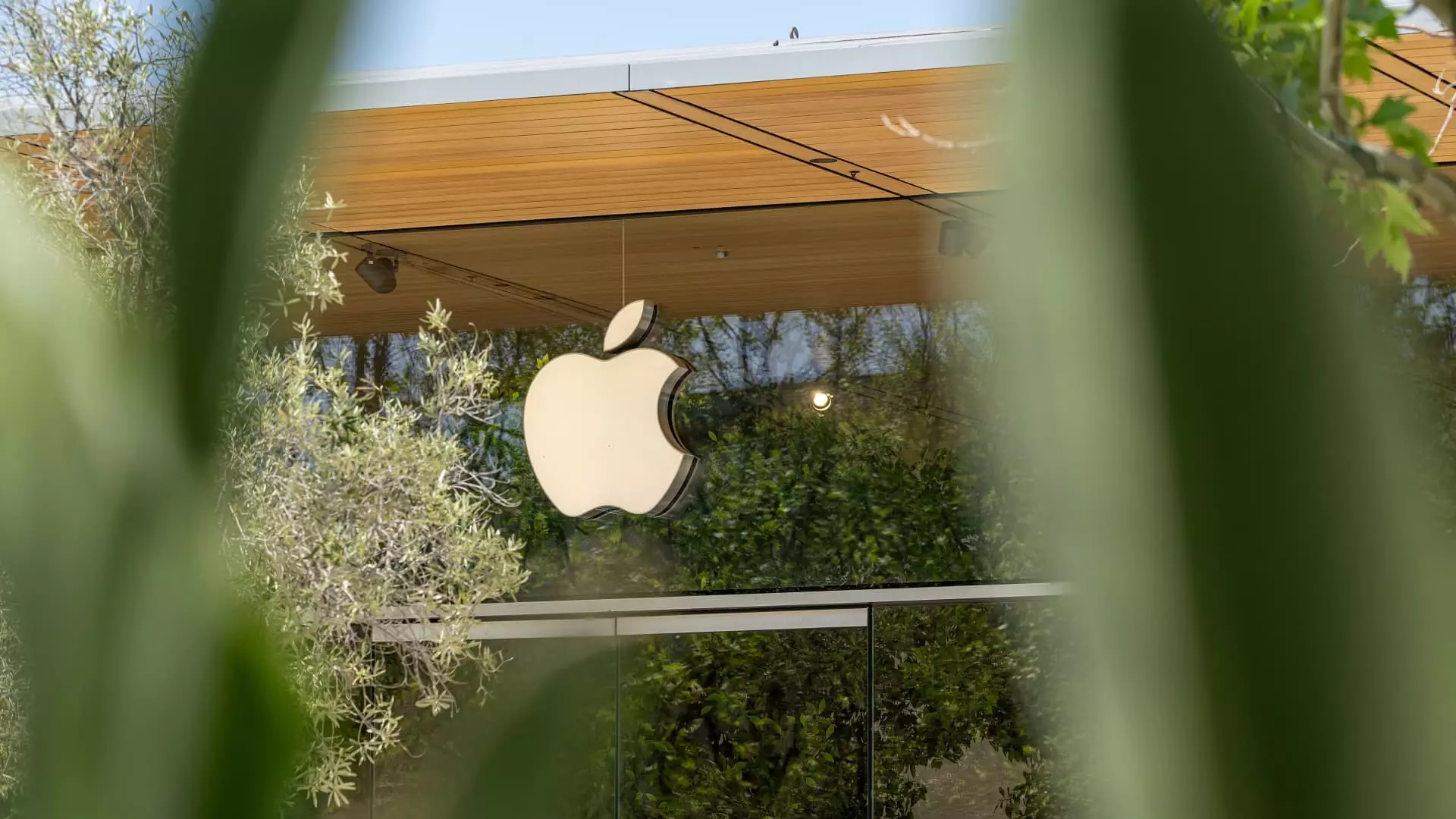Apple Inc., a titan in the technology world, is embroiled in a multifaceted legal skirmish with Epic Games, a leading player in the gaming industry. The crux of this conflict revolves around Apple’s ability to enforce its commission structure on in-app purchases—a model that has long drawn criticism for being monopolistic in nature. Recently, U.S. District Judge Yvonne Gonzalez Rogers issued a ruling striking at the heart of Apple’s practices, declaring that the company had breached previously established legal orders. Consequently, Apple is seeking a judicial pause on these developments while preparing for an appeal, highlighting the ongoing tug-of-war over digital marketplace dynamics.
A Shift in Legal Landscape
Judge Rogers’ ruling marks a significant evolution in the judicial landscape concerning digital marketplaces and the responsibilities of app store owners. By mandating that Apple cease collecting commissions on purchases made through external links within its applications, the judge has embarked on a trailblazing path that could reshape the economic structure for app developers. Notably, this decision represents a substantial victory not just for Epic Games, but for a host of developers seeking freedom from Apple’s stringent controls. The judge’s expansive order suggests a recognition of the need for greater competition within app ecosystems, a position frequently echoed by critics of Apple’s monopolistic tendencies.
The Implications for App Developers
The ramifications of this ruling extend far beyond Epic Games alone; the entire app development community is poised to benefit. Developers are no longer shackled by Apple’s commission structure and can redirect customers to their websites for payment, significantly altering the economic landscape of app monetization. Applications such as Amazon’s Kindle can now link users out of the app to make purchases directly through the website, circumventing what was once an almost obligatory payment pathway through Apple.
In his response to the ruling, Epic CEO Tim Sweeney expressed a belief that the changes force Apple to embrace competition—a sentiment that strikes at the core of the debate about fair business practices in the digital age. Although Apple decries the potential economic fallout, with projections of losing hundreds of millions to billions annually, the wider implications for consumer choice should not be overlooked.
Critique of Apple’s Resistance
Apple’s emergency motion to stay the judge’s ruling raises questions about the company’s commitment to innovation and consumer choice. The assertion that these changes will “cost substantial sums” may resonate financially with shareholders, but it neglects a more extensive societal dialogue about fair competition and market access. By appealing the judge’s decision and seeking to maintain a stranglehold on its commission structure, Apple risks reinforcing the perception of itself as an oppressor rather than an innovator.
Interestingly, the suggestion that the ruling may deprive consumers of choice due to app developers linking out for purchases seems counterintuitive. Isn’t the essence of competition supposed to enhance choice, rather than stifle it? The narrative presented by Apple, which paints any shift towards open-market practices as detrimental, thus rings hollow in light of the judge’s intent to cultivate a healthier marketplace.
A Judicial Reprimand and Its Aftermath
Furthermore, Judge Rogers’ referral of possible criminal misconduct against Apple for misleading the court presents a new and alarming dimension to this conflict. Accusations of an Apple executive’s dishonesty regarding commission structures point to a culture within the organization that prioritizes profitability over transparency. Far too often, it seems that corporate powerhouses skirt the line of ethical behavior, undermining the legislative systems designed to keep such entities in check. The judge’s actions represent a necessary pushback against corporate malfeasance, reinforcing the idea that accountability is a crucial element of any competitive marketplace.
The Future of the App Economy
As Apple charts its next moves in this legal arena, the outcome of this case could very well determine the fate of the app economy for years to come. Should Judge Rogers’ ruling stand, it might open the floodgates for more competitive practices and greater consumer choice. Alternatively, if Apple manages to arrest these reforms, it could solidify its position, reinforcing an environment where developer autonomy is significantly limited.
This legal battle serves as a reflection of broader themes in the tech industry regarding power dynamics, corporate governance, and consumer rights. As stakeholders from various sectors observe closely, the implications of this dispute will likely ripple outward, shaping the future of digital commerce and the ongoing relationship developers maintain with powerful platform proprietors like Apple.


Leave a Reply